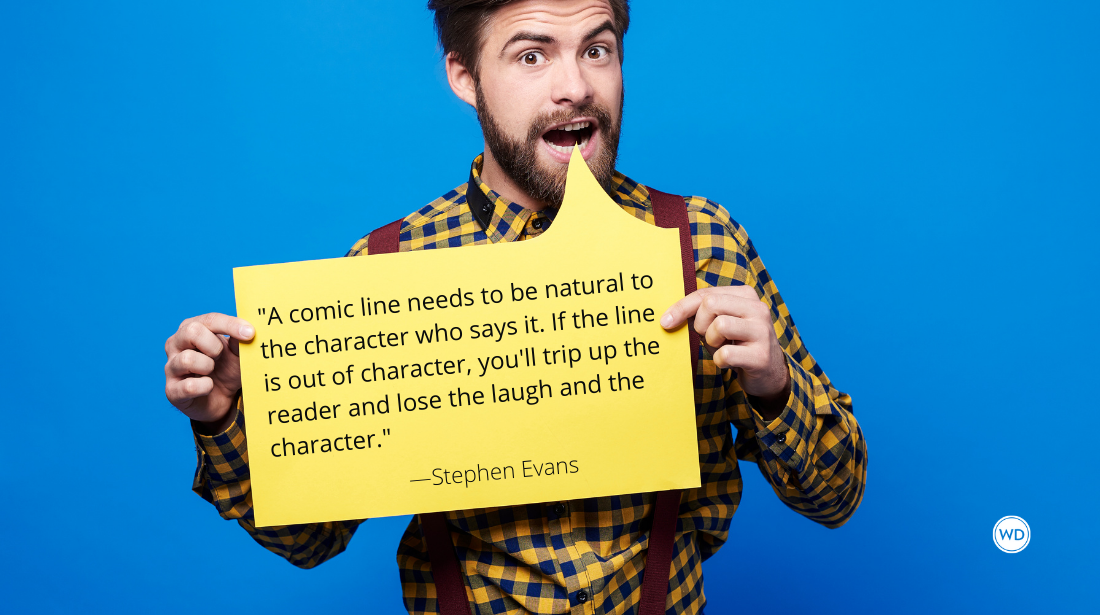This Writer’s Life:Giving It Up
Sometimes it takes a good kick in the pants to get your act together. by Kevin Alexander
Having just graduated from my MFA program and produced a book-length work of fiction, I should be feeling awesome. I should be feeling satisfied that I actually completed something that my father said I’d never be able to do. And yet I can’t help but be conflicted, mostly because I can’t decide whether or not my book is actually finished.
It feels and looks and tastes done, sitting there in its professional-looking box. But my own form of lazy perfectionism produces paranoia, and paranoia makes my mind sway back and forth like an oscillating fan. Sometimes I think, Wow, this is an amazing literary piece de innovative resistance. The story hums along, the dialogue snaps and crackles while seldom popping, and there’s a narrative arc so beautifully crafted and steeply climaxed that it resembles the scary part of Big Thunder Mountain Railroad. The only real worry is how my wit will come across in Bulgarian when they inevitably translate the book into 42 languages of international awesomeness.
But then at other times I read portions of the book and feel almost positive that I should’ve gone into something involving the dismantling of air conditioning units. At least then I’d know when I was done.
Questions run in and out of my head like tiny, annoying track stars. Shouldn’t I rewrite the ending once more to make sure it’s tight and sounds pitch-perfect? Don’t I need to add some verbal tic to that character to make sure he’s distinguishable from the others? Are there too many swears? Too few? Would perfume-scented paper enhance my literary skill?
Immersed in paranoia, I resorted to the thing that has been crippling writers since well before the Interweb: doing nothing. Not only could I not write, but I couldn’t send out my work. Every day, while deciding what other cereal I was going to mix with Frosted Mini-Wheats, I’d glance at my manuscript and get overwhelmed. Occasionally, I’d return to my desk motivated to finally put the “finishing touches” on the book, but get distracted by something important that needed to be finished right then, like an anagram or a game of Ms. Pac-Man. Worst of all, there was no one pushing me forward—no thesis advisor demanding pages, no editor lashing me to finish before deadline, no father demanding I get out of his
hot tub and start writing.
This pressure consumed me every day. It was like taking a Berlitz course in solitary paranoia. Everything was resting on the do-nothing me. Until finally, mercifully, it wasn’t.
“You’ve got one week,” my dentist roommate said one morning as he sipped his coffee and watched an episode of “Iron Chef.”
“One week for what?” I asked, my mind desperately back-scanning, trying to figure out what I’d done to wrong him. “Is this about me eating your British Kit Kats?”
“No,” he said, while likely making a mental note that he’d now need to hide the Kit Kats. He motioned to the manuscript on the table. “It’s about your book.”
“What about it?”
He put his coffee cup down. “I’ve been watching you stare at that thing every morning since you got your freakin’ MGA.”
“MFA.”
“Whatever,” he said. “The point is, you said you were done. You said you were going to send it out. And now it just sits there, taking up space like your trendy sneaker collection. Don’t you want to get it out of here?”
“I do,” I said, “but … ” and launched into a soliloquy of the problems inherent in my manuscript, my work habits and my life. When I finished, there was a pause before my roommate looked up at me.
“Sorry,” he said. “I really wasn’t listening. But I’m sure whatever you said was just a rationalization.” He stood up. “Look, you’re the one who wanted to write a book. You need to do something with it. If that isn’t sent out by the end of the week, I’m throwing it away.”
At first, I was furious. Who was he to say when I should send my work out? He’s a dentist. A tooth cleaner. He doesn’t understand the publishing world or the creative process. He doesn’t comprehend the inner struggle of a writer or the fear of literary rejection. It was right then and there that I decided to eat the rest of his Kit Kats.
But over the next 24 hours, my paranoia dissipated and I started to see his point. Everyone talks about doing things—how they have an idea for a book or magazine piece or whatever—but how many of those people actually sit down and do it? The irony was that I’d already gotten through the hardest part and now I wanted to give up. It’s like quitting a marathon in mile 25 because your shoulder hurts.
Re-energized by my roommate’s draconian rules, I spent the next few days writing my tail off. I finally got rid of that lame chapter I was holding on to, I reworked a character into the narrator’s romantic interest and decided to cut 30 percent of the swears. Two days before deadline, I took the manuscript, put it in a box, said a small non-denominational prayer and mailed it to my agent friend. Then I returned home as my roommate was cooking dinner.
“I did it,” I nearly shouted, happy to have the thing that was consuming me off my plate. “It’s gone!”
My roommate turned to me, a pair of large silver tongs in his hand. “What are you talking about?”
“My book!” I said. “I made the changes and sent if off two days earlier than you’d demanded.” I pointed toward the empty table and smiled. “Looks like someone won’t be able to throw my work away after all.”
“Oh.” He turned back around to inspect a piece of chicken apple sausage. “I’d forgotten all about that.”









